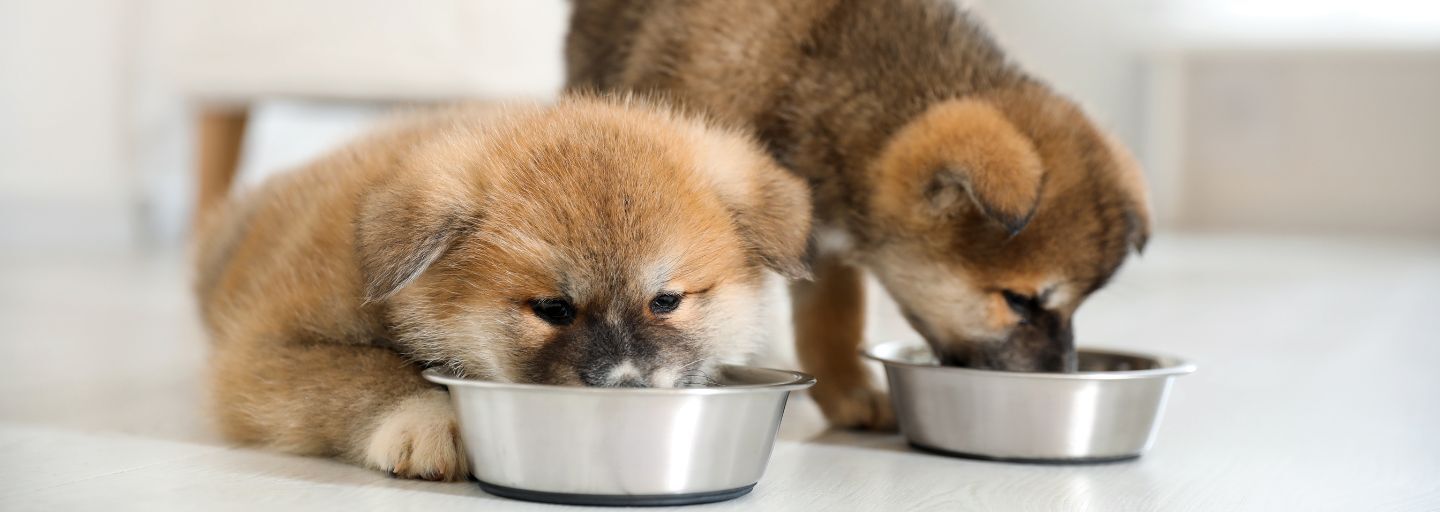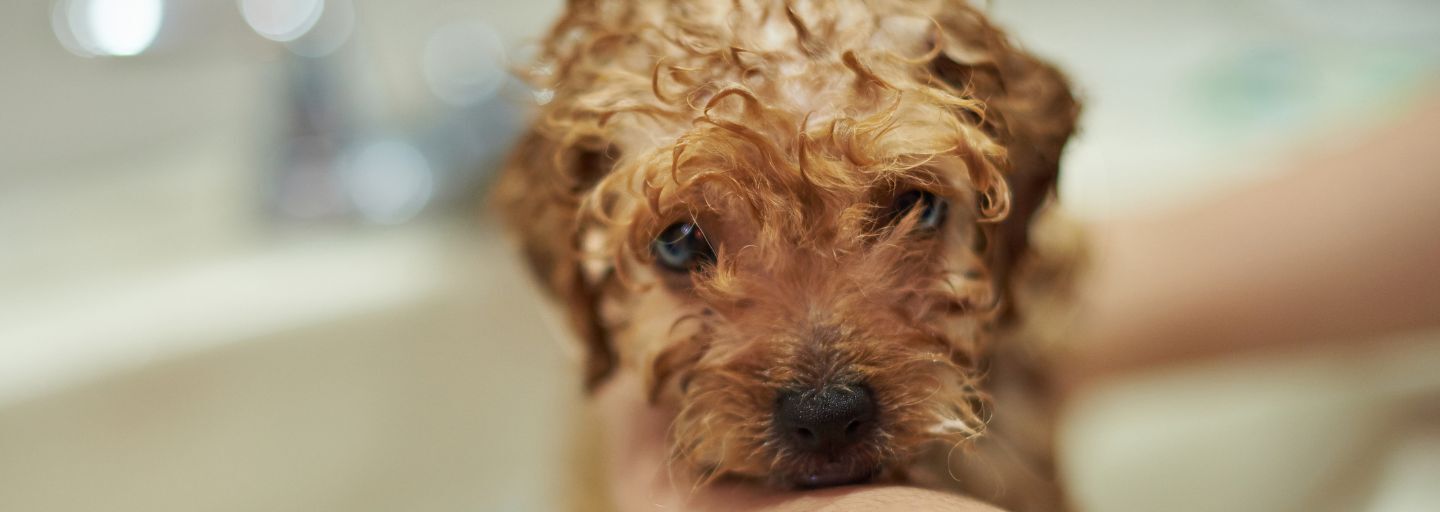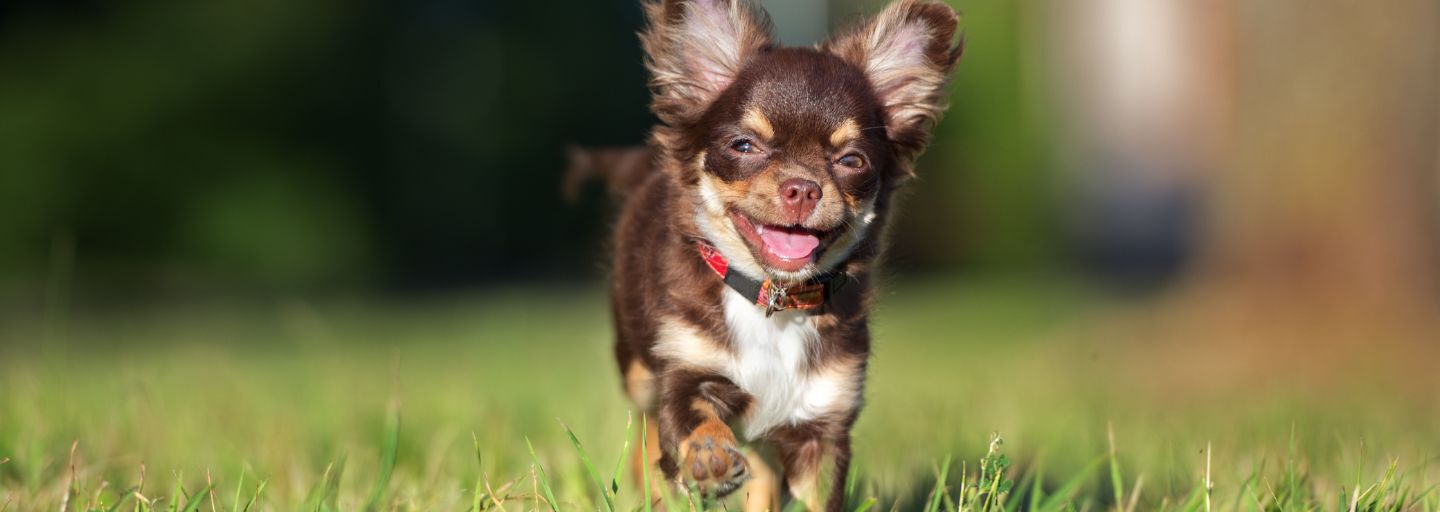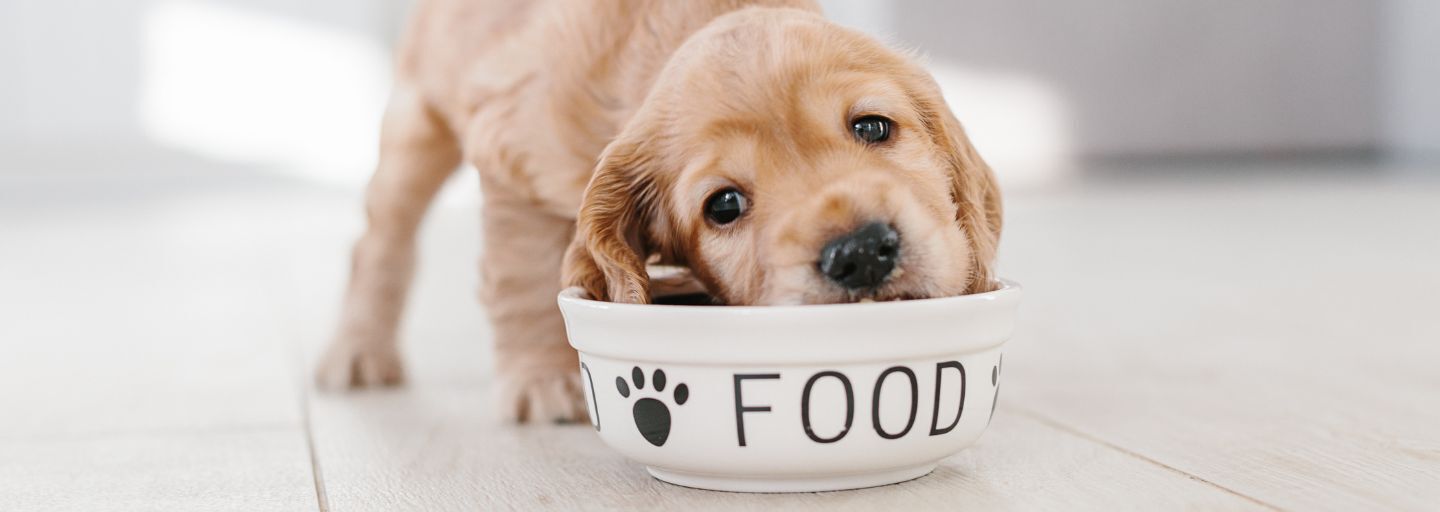Your puppy’s nutritional needs are greater now than at any other time in its life, apart from reproduction. Understanding what your puppy needs will help you make the right dietary choices.
The Developing Puppy
The puppy stage sets the foundation for a dog's whole life. The length of this period can vary. For large or giant breed dogs, it can take about two years. For all other dogs, one year is generally the rule of thumb.
During this time, puppies undergo rapid physical development, including:
- Bones and joints growing to full size.
- Muscles developing and growing.
- Internal organs growing (this continues even after your dog appears to be full size).
- Immune system developing and learning to protect the body.
- Cognitive development and brain growth.
To put it in perspective, a human usually takes about 14 years to achieve similar development – so that’s a lot of growing for your puppy in a short amount of time!
Puppy Nutritional Needs
Nutrition is crucial to support this level of development, and a healthy diet should include:
- Protein: As a key building block of muscle, skin, coat, organs, and other tissues, a puppy will need abundant protein during this period of growth.
- Calcium and Phosphorus: These are necessary ingredients for healthy bones and teeth and must be present in the correct ratios to grow bones and teeth correctly.
- Omega Fatty Acids including Linoleic Acid: This provides complete and balanced nutrition, promotes a healthy immune system, and helps keep your puppy's skin and coat healthy.
Purina has specifically designed food to provide a well-balanced puppy diet with all the nutrition your puppy needs for a long and exceptional life.
Do’s and Don’ts
- Do follow the puppy feeding guidelines on the back of their food pack or at your vet's advice. One of the worst things you can do is allow your puppy to become overweight, which has serious health implications.
- Do mix new food in with the old over two weeks when you change food. If you gradually increase the amount of new food and decrease the amount of the old, you’ll make the transition easier on your puppy.
- Do feed your puppy at the same times every day and develop a routine. Feed young puppies three times a day, older puppies twice a day, and once per day for adults.
Don’t feed your puppy from the table. This adds calories and unneeded fat to a dog’s diet and can make your puppy a fussy eater.



